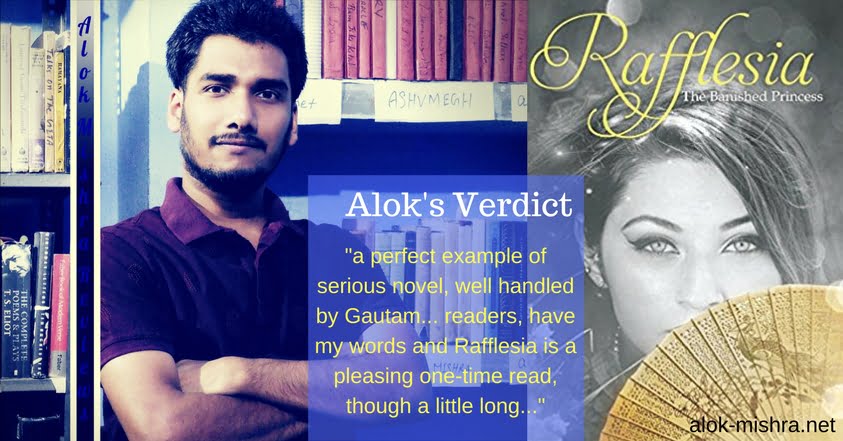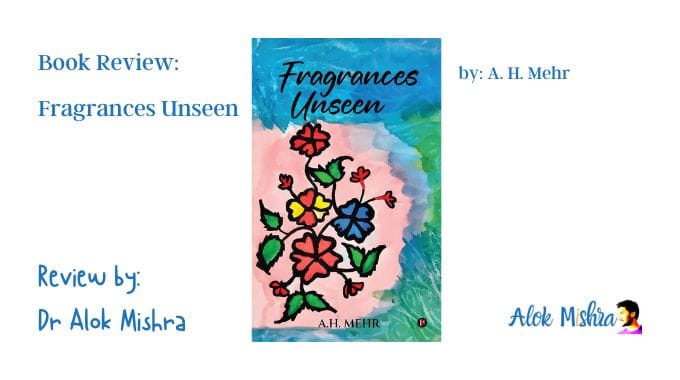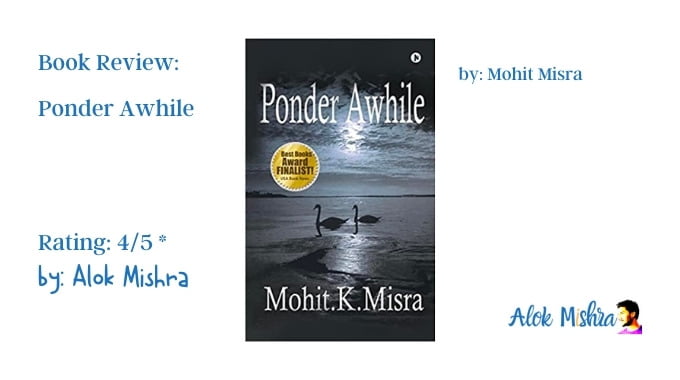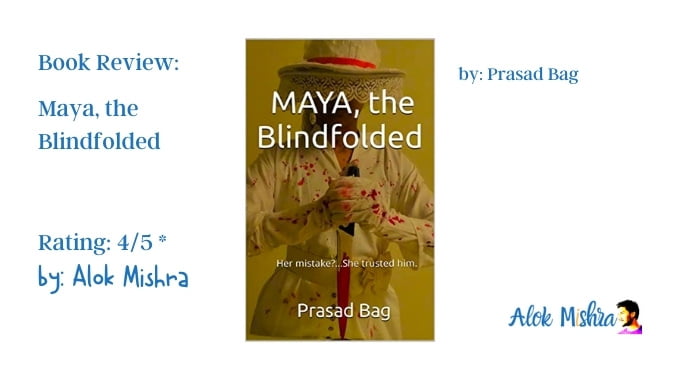A. H. Mehr’s Fragrances Unseen is an exquisite collection of poetry and prose that evokes…
Rafflesia The Banished Princess
Some of the fiction pieces are not meant to be mere fiction and they extend beyond being ones… they become philosophy, psychology, history and even autobiography of many people at once. I am lucky to have read a number of the fiction pieces which might fit well in the criteria discussed above. Autobiography of a Yogi, The Prelude, The Waste Land, Pilgrim’s Progress, Othello and a long list would follow. This time, however, I was rather surprised to see a complete ‘Hollywood’ style fiction appear in Indian book markets – Rafflesia – The Banished Princess. By the title a seeming fairy tale, this is a novel written by author Gautam. Almost a deceiving cover, the novel turns out to be a complete psychological ‘look inside’ into a character named Appu who is also the protagonist of the novel. The way this novel unfolds the fiction of a marriage, a life and a person, it seems that this is for most of the men out there who have difficulties in their married life.

“Anand wanted to extend his friendship with Appu beyond the college boundaries. Appu wanted it to remain within.”
But that does not tell the entire story about this young guy Appu whose life since the childhood to his becoming a true man is covered in this novel – leaving the body of Appu ‘fillable’ with any reader’s thoughts… Appu is an introvert most of the times, not because of his choice but by his circumstances. He wants to do something for his parents; he wants to do something for his family; he wants to do something for himself. He tries everything he could; he does everything he could; he even succeeds… but as they say, things happen not was we plan but the way someone above plans for us! Just to the contrary of Appu’s friend Rahul (who is also one of the ‘fulcrum’ in Rafflesia – The Banished Princess), Appu does not enjoy a life which could be said ‘satisfactory’ leaving aside the ‘happy’ one.
Appu is a person who is on the verge of his divorce with Jharna, his wife who left him within 2 days of their marriage. Appu is left baffled only to know the reason towards the end of the novel. He gets it at the end but the gap between his marriage and divorce is something which makes this novel a pretty serious one! The mental trauma that he goes through and the endurance that he learns to wear… there are the things which are remarkable and there are the things which will make a reader lose his or her patience as well.
The novel’s narrative is something that you will find in fragments only – something here and something there. This is a style which is widely used by many new authors and to the best of this novel, it might well be said the suitable one. The parts of the novel are always connected whether you are diving deep into the past of just reading something contemporary. There are many characters, and I mean when I say ‘many’. Important ones are (except Appu and Rahul) Sunaina – the lawyer, Trina – Appu’s mother, Aabir – Appu’s father, Sujata – the linking character to the allegory, and many others which are there in Holland and different parts of India.
The plot of the novel is simple and the theme is also a known one. However, the handling, which might seem at times complicated, is wonderful! A serious reader will find many things to enjoy in the novel which might be a complicated movie best acted by someone like Ethan Hawke…
Alok Mishra’s Verdict:
Read the novel to the end! If you fail to do that, you will miss the important role that Bunty (an important character) plays in the book. You will also miss the important and beautiful lines in the novel somewhere:
“I am just happy for the one who will arrive. Someone who will be just mine. My own.”




This Post Has 0 Comments